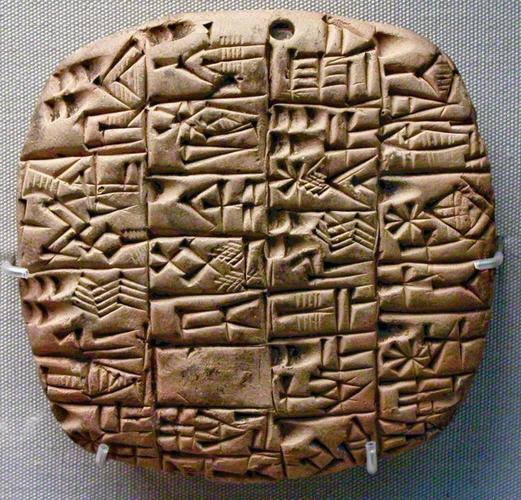
Have you been in a new environment where you can't speak their language or understand it?
You will feel bad for being limited right? but what If you have a language translator, you're happy to communicate.
This happiness is what @quant_network brings to crypto.
#QNTTalent
You will feel bad for being limited right? but what If you have a language translator, you're happy to communicate.
This happiness is what @quant_network brings to crypto.
#QNTTalent

To be technical, this happiness is referred to as interoperability.
By interoperability, I refer to the ability of different systems, network applications, etc to connect and communicate in a coordinated way.
How does @quant_network solve this problem?
By interoperability, I refer to the ability of different systems, network applications, etc to connect and communicate in a coordinated way.
How does @quant_network solve this problem?
They achieved this by leveraging their Overledger network.
Simply put, an Overledger can be seen as a translator used to move from one language to the other.
Instead of learning an entirely new language, the translator will break down the information into your own language.
Simply put, an Overledger can be seen as a translator used to move from one language to the other.
Instead of learning an entirely new language, the translator will break down the information into your own language.
But how could this translator work?
it usually has a special technical feature that allows it to break down the message in the words of the other language.
it usually has a special technical feature that allows it to break down the message in the words of the other language.
And at the end, communication and sharing of data and messages are accomplished without limitation.
The @quant_network brings interoperability to the distributed ledger network(DLTs) and other different networks and systems that can ever exist which need data shared across multiple networks.
To get a breakdown of what a DLT is, you can check the thread below.
https://twitter.com/Modestu50/status/1593069722915831808?t=ns1qO2pAwW9g9ZrLyFcaFA&s=19
But what is an Overledger?
I will try my best to break this down to the nearest minimum since it's a very technical topic and at the end, I will provide material for you to read.
That's cool, right?
I will try my best to break this down to the nearest minimum since it's a very technical topic and at the end, I will provide material for you to read.
That's cool, right?
But before we proceed, I would like to define a few terms;
A. API: This means App programming interface and it defines how an application interacts with another application to process their request and response.
A. API: This means App programming interface and it defines how an application interacts with another application to process their request and response.
B. Node: This refers to a point connected to a data communication network.
C. Hashing Function: Converting any form of data to a unique string of text of a fixed size.
Overledger is an operating system/software that gives various DLTs, networks, and systems the opportunity to interact with each other seamlessly.
Similar to how a translator removes the language limitation, Overledger provides similar benefits by providing a space where any chain, network, systems, or DLTs that connect to it will easily share data.
In addition, data, messages, and transactions will be easily processed among these networks.
But how could the Overledger achieve this?
Firstly, it utilizes nodes to provide access to its network.
Firstly, it utilizes nodes to provide access to its network.
Simply put, there use nodes known as gateways to give both users and developers access to the Oerldeger network.
Once you have access to the network, you can interact with everyone on the network depending on their criteria for interaction.
Once you have access to the network, you can interact with everyone on the network depending on their criteria for interaction.
For example, an enterprise DLT might be closed to public interaction while a public mAPP will be open to everyone.
Also, to relay the information going on in the network, Overledger makes use of a hashing function to secure the data.
Also, to relay the information going on in the network, Overledger makes use of a hashing function to secure the data.
To make things easier for you to understand well, let me briefly explain how a block is added to a blockchain.
When a miner collects txs from the mempool and mines a block by adding the required nonce, that block will have a unique HASH.
The next block will contain this hash together with its own unique hash.
This entails that by looking at these hash, someone can easily link back to the genesis block.
This entails that by looking at these hash, someone can easily link back to the genesis block.
What Overledger does is scan the hash of the message to ensure that such a message is in line, however, it doesn't break into the hashed message because it doesn't have the private key.
It simply verifies that such messages agree with what is happening in the network/chain it's been sent from.
In essence, the Overledger can be seen as an SDK of SDKs or a network of networks, or a universal API into different networks and DLTs.
And that's a wrap. I curated the links below for you so that you can learn more about Overledger.
1. Deep breakdown by SEQ.
link.medium.com/gZBNJXDy4ub
1. Deep breakdown by SEQ.
link.medium.com/gZBNJXDy4ub
2. Video breakdown of how Overledger works as well as how $QNT is incorporated.
Tagging gigabrains writing great threads on Twitter below.
@CryptoNagato
@GregLunt27
@Threetoesloth1
@Ledy1
@_CryptoManny
#QNT #crypto #QNTTalent
@CryptoNagato
@GregLunt27
@Threetoesloth1
@Ledy1
@_CryptoManny
#QNT #crypto #QNTTalent
• • •
Missing some Tweet in this thread? You can try to
force a refresh







